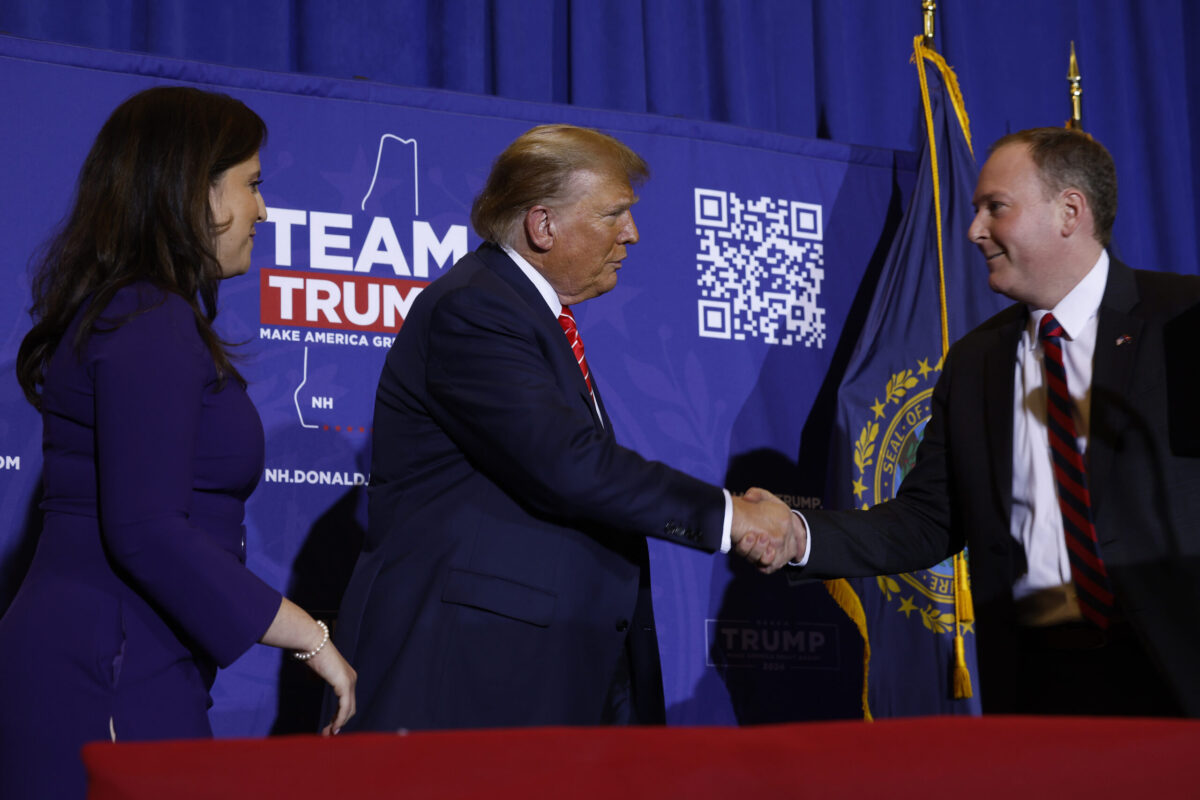Donor backlash devastates Ivy League as Harvard, Columbia seek bailouts
Ivy League universities, particularly Harvard and Columbia, have faced a crisis since October 2023, when both institutions revealed themselves as places where blatant anti-Semitism openly flourishes. Amid the anti-Semitic uprisings on campus, the presidents of both schools also faced academic plagiarism charges. Alumni and donors, who expected more from the schools’ leaders and did not share the apparent tolerance for Jew-hatred, have stopped contributing financially.As reputational and financial damage mounted, Harvard President Claudine Gay resigned in disgrace last January, and Columbia President Minouche Shafik followed in August.Despite an endowment exceeding $50 billion, Harvard had to expedite bond offerings earlier this year to quickly raise $1.6 billion in cash. But with those poison Ivies still trying to find a way to balance a hollow commitment to “tolerance” with appeasement of the widespread anti-Semitism demanded by much of their faculty and student body, donors remain repelled, and fundraising continues to struggle.In early October, Harvard’s new president, Alan Garber, teased that some very bad financial news was about to be revealed for the fiscal year that ended on June 30, 2024. The Harvard Crimson reported Garber as stating, "Some of the new commitments have been disappointing compared to past years.” In discussing the passion of alumni who are concerned about the current culture and events at Harvard, Garber added, “They’ve been quite vocal.”The bad news came out a week later. The Harvard Crimson reported:Harvard’s fundraising crisis now has a price tag: $151 million. Total philanthropic contributions fell by 14 percent in fiscal year 2024 as several billionaire donors publicly severed ties with Harvard over its response to campus antisemitism. The $151 million decline marks one of the most significant year-over-year drops in donations in the past decade.The donor crisis at Columbia has worsened. The university held its annual Giving Day event this fall, but donations dropped 29% from the previous Giving Day in 2022. (Due to campus turmoil over the university community’s support of Hamas' October 2023 terror attack, there was no Giving Day in 2023.)The Columbia Spectator laid out the bad news:Columbia held its 12th annual Giving Day on Tuesday, raising a total of $21,362,592 after a one-year hiatus, a 28.8 percent decline in funds compared to 2022’s record-breaking year.As the University grapples with a donor crisis—born out of concerns regarding campus protests—this year saw a 27.9 percent drop in the number of gifts, falling from 19,229 in 2022 to 13,870, the lowest since 2015. This year is the first that the total monetary amount of donations has declined from the previous Giving Day since the event’s inception in 2012.Viewed over a two-year span, the situation at Columbia is simply catastrophic. The university raised $58 million combined in 2021 and 2022. But over 2023 and 2024, the combined total plummeted to just $21 million. The $38 million decrease in biennial giving represents a 64% decline.Amid declining contributions, it seems both schools are facing a liquidity squeeze.Despite an endowment exceeding $50 billion, Harvard had to expedite bond offerings earlier this year to quickly raise $1.6 billion in cash. The university raised $750 million in taxable bonds through Goldman Sachs and received approval from Massachusetts to issue up to $2 billion in state tax-exempt bonds. However, investor demand only supported $735 million of those state bonds, leaving Harvard more than $100 million short of its $1.6 billion goal.Having contributions fall off further in the meantime can’t be helping Harvard’s cash crunch.Published reports indicate that Harvard’s endowment is only about 20% in liquid assets (cash, stocks, bonds) with about 40% invested in private equity, about 30% in hedge funds, and 10% in real estate and other illiquid assets.Several months ago, billionaire Bill Ackman noted that Harvard’s budgeting and endowment management rely on certain assumptions about alumni donations. These assumptions didn’t account for the possibility of a donor revolt and the steep decline in current-year cash gifts. Ackman speculated that Harvard’s need for quick cash to make up for lost donations led to the recent bond offerings, especially given the current high-interest rate environment.Journalist Ira Stoll revealed that much of the cash Harvard raised was used to pay off maturing debt issued at lower interest rates and to roll over some short-term debt.I don’t know enough to question the legitimacy of Harvard’s illiquid investments, but it is reasonable to question the “investment strategy” of Harvard’s famous endowment if it is so illiquid that even with several years lead time to prepare for bond maturity, its other investment assets cannot get converted into cash to pay off maturing bonds, thus requiring new, higher-interest debt. If an investment cannot ultimately be converted to cash, ho


Ivy League universities, particularly Harvard and Columbia, have faced a crisis since October 2023, when both institutions revealed themselves as places where blatant anti-Semitism openly flourishes. Amid the anti-Semitic uprisings on campus, the presidents of both schools also faced academic plagiarism charges. Alumni and donors, who expected more from the schools’ leaders and did not share the apparent tolerance for Jew-hatred, have stopped contributing financially.
As reputational and financial damage mounted, Harvard President Claudine Gay resigned in disgrace last January, and Columbia President Minouche Shafik followed in August.
Despite an endowment exceeding $50 billion, Harvard had to expedite bond offerings earlier this year to quickly raise $1.6 billion in cash.
But with those poison Ivies still trying to find a way to balance a hollow commitment to “tolerance” with appeasement of the widespread anti-Semitism demanded by much of their faculty and student body, donors remain repelled, and fundraising continues to struggle.
In early October, Harvard’s new president, Alan Garber, teased that some very bad financial news was about to be revealed for the fiscal year that ended on June 30, 2024. The Harvard Crimson reported Garber as stating, "Some of the new commitments have been disappointing compared to past years.” In discussing the passion of alumni who are concerned about the current culture and events at Harvard, Garber added, “They’ve been quite vocal.”
The bad news came out a week later. The Harvard Crimson reported:
Harvard’s fundraising crisis now has a price tag: $151 million. Total philanthropic contributions fell by 14 percent in fiscal year 2024 as several billionaire donors publicly severed ties with Harvard over its response to campus antisemitism. The $151 million decline marks one of the most significant year-over-year drops in donations in the past decade.
The donor crisis at Columbia has worsened. The university held its annual Giving Day event this fall, but donations dropped 29% from the previous Giving Day in 2022. (Due to campus turmoil over the university community’s support of Hamas' October 2023 terror attack, there was no Giving Day in 2023.)
The Columbia Spectator laid out the bad news:
Columbia held its 12th annual Giving Day on Tuesday, raising a total of $21,362,592 after a one-year hiatus, a 28.8 percent decline in funds compared to 2022’s record-breaking year.
As the University grapples with a donor crisis—born out of concerns regarding campus protests—this year saw a 27.9 percent drop in the number of gifts, falling from 19,229 in 2022 to 13,870, the lowest since 2015. This year is the first that the total monetary amount of donations has declined from the previous Giving Day since the event’s inception in 2012.
Viewed over a two-year span, the situation at Columbia is simply catastrophic. The university raised $58 million combined in 2021 and 2022. But over 2023 and 2024, the combined total plummeted to just $21 million. The $38 million decrease in biennial giving represents a 64% decline.
Amid declining contributions, it seems both schools are facing a liquidity squeeze.
Despite an endowment exceeding $50 billion, Harvard had to expedite bond offerings earlier this year to quickly raise $1.6 billion in cash. The university raised $750 million in taxable bonds through Goldman Sachs and received approval from Massachusetts to issue up to $2 billion in state tax-exempt bonds. However, investor demand only supported $735 million of those state bonds, leaving Harvard more than $100 million short of its $1.6 billion goal.
Having contributions fall off further in the meantime can’t be helping Harvard’s cash crunch.
Published reports indicate that Harvard’s endowment is only about 20% in liquid assets (cash, stocks, bonds) with about 40% invested in private equity, about 30% in hedge funds, and 10% in real estate and other illiquid assets.
Several months ago, billionaire Bill Ackman noted that Harvard’s budgeting and endowment management rely on certain assumptions about alumni donations. These assumptions didn’t account for the possibility of a donor revolt and the steep decline in current-year cash gifts. Ackman speculated that Harvard’s need for quick cash to make up for lost donations led to the recent bond offerings, especially given the current high-interest rate environment.
Journalist Ira Stoll revealed that much of the cash Harvard raised was used to pay off maturing debt issued at lower interest rates and to roll over some short-term debt.
I don’t know enough to question the legitimacy of Harvard’s illiquid investments, but it is reasonable to question the “investment strategy” of Harvard’s famous endowment if it is so illiquid that even with several years lead time to prepare for bond maturity, its other investment assets cannot get converted into cash to pay off maturing bonds, thus requiring new, higher-interest debt. If an investment cannot ultimately be converted to cash, how does it have a value?
Columbia University also announced a few weeks ago that it too was hitting the bond market for a cash infusion. Columbia is seeking to raise about $500 million with this new debt, despite having an endowment valued at around $15 billion.
The Ivy League schools, especially Harvard and Columbia, have exhausted their reputational capital, and now they are exhausting their working capital. They have shown themselves to be morally and ethically bankrupt. If their liquidity problems can’t be rectified, and if donors have permanently slashed their recurring cash lifelines, perhaps financial bankruptcy is also in the offing for Harvard and Columbia. It would be a long time coming.
Originally Published at Daily Wire, World Net Daily, or The Blaze
What's Your Reaction?

































































































